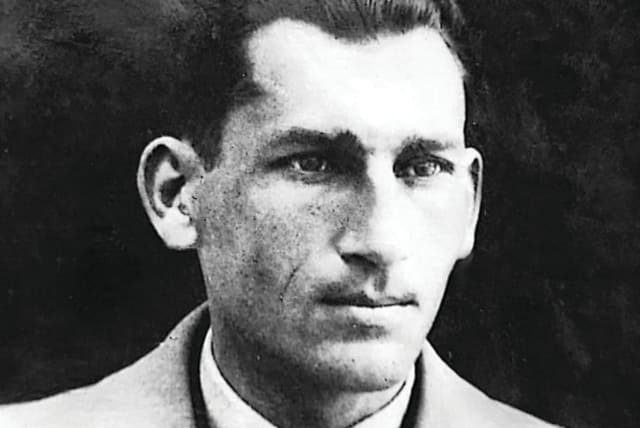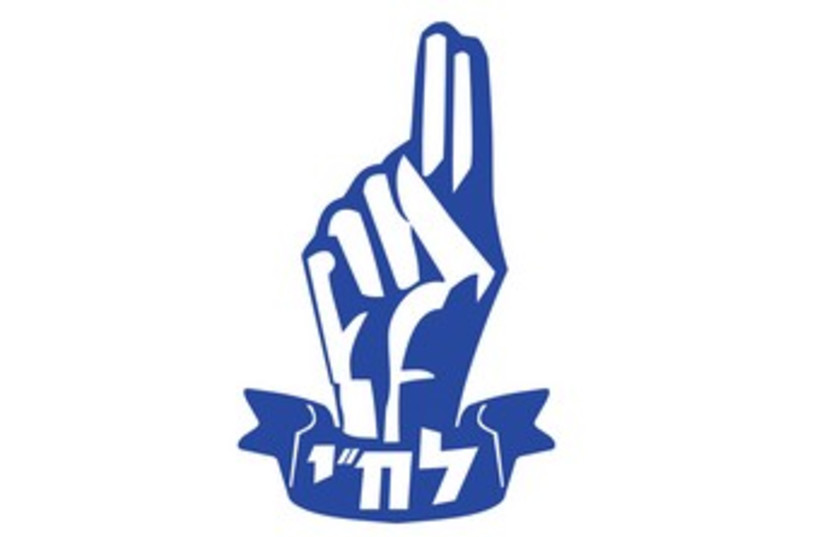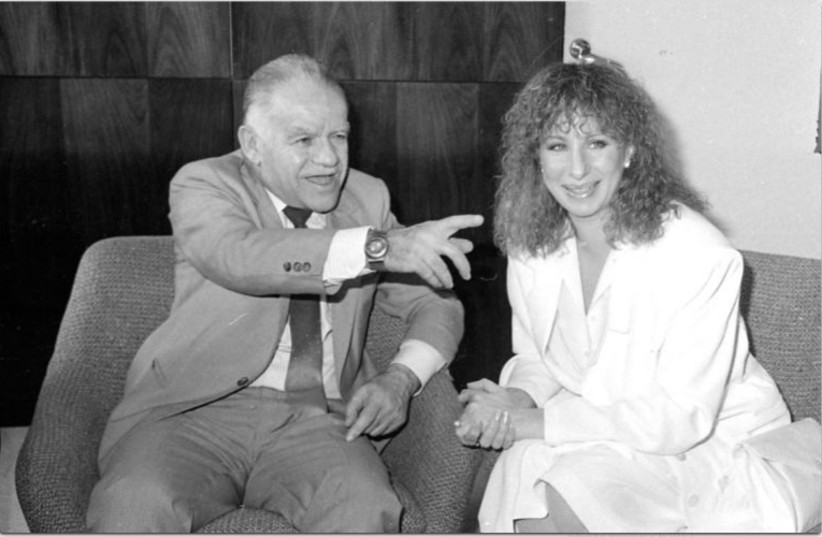How should Avraham Stern be remembered? - opinion

The once Zionist renegade is now part of the Israeli mainstream - but was he more terrorist or freedom fighter?
On February 12, 1942, Avraham Stern, commander of the militant underground Lehi (Freedom Fighters of Israel) was murdered by the British police immediately after his arrest.
At the time, most Jews considered Stern, known by his nom de guerre as “Yair,” to be a bold nationalist maverick. But over the decades since his death, Stern has increasingly edged into the Israeli consensus.
Terrorists and radicals
For the British authorities, the “Stern Gang” was a collection of murderous terrorists, guilty of targeting and killing numerous British personnel. Wanted posters promising a sizeable reward for information leading to Stern’s arrest were plastered across Mandatory Palestine.
The Jewish Agency leadership, headed by David Ben-Gurion, saw Stern as the commander of a radical splinter group, unwilling to accept the authority of the Jews’ elected representative institutions, and whose uncontrolled violence shamed and endangered the Zionist project.
Ben-Gurion, later Israel’s first prime minister, repeatedly condemned Stern’s actions in the strongest terms, and in the newborn Jewish state, Stern loyalists, like other members of the dissident undergrounds, suffered discrimination in finding employment and even in renting apartments.
But such ostracization was to progressively dissipate. In the early 1950s, former Lehi fighters were enlisted into the Mossad, their underground experiences seen as good preparation for a successful career in espionage – with one Lehi-commander-turned-Mossad-agent, Yitzhak Shamir, going on to become Israel’s seventh prime minister.
Today, the apartment in Tel Aviv’s Florentin neighborhood where Stern was murdered is Beit Yair, a Defense Ministry museum that honors Stern’s legacy and Lehi’s accomplishments.
In addition, with “Avraham Stern” streets ubiquitous across Israel, the upscale town of Kochav Yair established in his memory, the Israel Postal Service issuing a stamp commemorating him, and Prime Minister Benjamin Netanyahu naming his firstborn son Yair, the once Zionist renegade is now Israeli mainstream.
BORN IN Poland in 1907, Stern’s childhood experiences included the travails of World War I and the Bolshevik Revolution. In 1925, he immigrated to Mandatory Palestine, where he completed high school in Jerusalem before going on to study at the Hebrew University.
There, together with others, Stern established a nationalist students’ society and became involved in Jewish self-defense, leading him to membership in the pre-state paramilitary organization Hagana.
The Hagana split
When the Hagana split between moderate and activist wings in 1931, Stern was clearly with the latter, and despite an academic sojourn in Florence, he became one of the key commanders of the militant group Irgun (National Military Organization).
The May 1939 Palestine White Paper announced a dramatic anti-Zionist shift in British policy, one that closed the door to eventual Jewish statehood, decreeing the Jews be a permanent minority in an Arab Palestine.
Moreover, the White Paper instituted drastic restrictions on the Jews’ rights to buy land and limited the number of immigration permits to 75,000 over a five-year period, after which all Jewish immigration would cease – having to be first approved by the Arabs.
With World War II imminent, by shutting the gates to the homeland Britain effectively condemned millions of European Jews to Hitler’s Final Solution.
In response, the Jewish Agency adopted a policy of protests and strikes, while accelerating “illegal” immigration. The Irgun intensified its armed rebellion.
However, with the outbreak of World War II in September 1939, Ben-Gurion declared that “we will fight the war as if there were no White Paper, and we will fight the White Paper as if there were no war,” and called upon Jews to enlist in the British military to fight the Nazis.
The Irgun acted similarly. It halted operations against the British and volunteered to assist London in the war effort. Irgun commander David Raziel was killed in 1941 fighting with the British in Iraq against the Axis.
Controversially, Stern opposed the truce with Britain and broke away from the Irgun to create a new militant underground group that would become Lehi. Stern believed that Britain’s wartime woes provided an opportune moment for the Jewish insurgency to intensify the struggle for statehood.
More dubious was Stern’s 1940 attempt to find a modus vivendi with the Axis powers based on a common anti-British agenda. Of course, Stern wasn’t the only British colonial subject to seek an alliance with London’s enemies to advance the cause of national independence – Egypt’s Anwar Sadat and India’s Subhas Chandra Bose did the same.
But even considering that Germany’s organized mass murder of Jews would only begin in earnest in June 1941, Stern’s doomed Axis outreach was political and moral folly – if not worse – and was based on a total misunderstanding of Nazi antisemitism.
Stern’s legacy was brought into further disrepute by the actions of his loyalists – specifically, Lehi’s November 1944 assassination in Cairo of Lord Moyne, Britain’s minister of state in the Middle East.
Moyne was a friend of Winston Churchill, and the killing was to challenge the prime minister’s long-espoused sympathy for the Jewish cause. Speaking in Parliament, Churchill said: “If our dreams of Zionism are to end in the smoke of assassins’ pistols and our labors for its future are to produce a new set of gangsters worthy of Nazi Germany, many like myself would have to reconsider the position we have maintained so consistently.”
Lehi’s September 1948 assassination in Jerusalem of UN peace mediator, Swedish Count Folke Bernadotte, also generated widespread condemnation – the killing expediting Ben-Gurion’s strident crackdown on the residual Jewish underground.
Nonetheless, in the following decade, while continuing to repudiate Stern’s behavior, Ben-Gurion found some positive words with which to describe Lehi’s founding commander: “There is no doubt that Avraham Stern was one of the greatest and most admired people to emerge during the Mandate. I venerate… his steely courage and boundless dedication to Israel’s liberation.”
Was Ben-Gurion retrospectively whitewashing a Zionist terrorist merely because Stern was a committed Jewish patriot, seemingly confirming the dictum that “one man’s terrorist is another man’s freedom fighter”?
Perhaps yes, perhaps no. But Nelson Mandela, democratic South Africa’s first president, wrote that in the struggle for liberation, he distinguished between legitimate acts of resistance that targeted the apartheid regime and its machine of repression, and the indiscriminate killing of innocent civilians – the former acceptable armed struggle, the latter illegitimate terrorism.
According to this formula, Stern’s attacks against the organs of British subjugation – officialdom, military and police – should be viewed as justified insurgency. Even in the politically questionable case of Lord Moyne, was not Lehi’s chosen victim the senior representative of British colonial rule?
The writer, formerly an adviser to the prime minister, is chair of the Abba Eban Institute for Diplomacy at Reichman University. Connect with him on LinkedIn, @Ambassador Mark Regev.
Jerusalem Post Store
`; document.getElementById("linkPremium").innerHTML = cont; var divWithLink = document.getElementById("premium-link"); if (divWithLink !== null && divWithLink !== 'undefined') { divWithLink.style.border = "solid 1px #cb0f3e"; divWithLink.style.textAlign = "center"; divWithLink.style.marginBottom = "15px"; divWithLink.style.marginTop = "15px"; divWithLink.style.width = "100%"; divWithLink.style.backgroundColor = "#122952"; divWithLink.style.color = "#ffffff"; divWithLink.style.lineHeight = "1.5"; } } (function (v, i) { });


